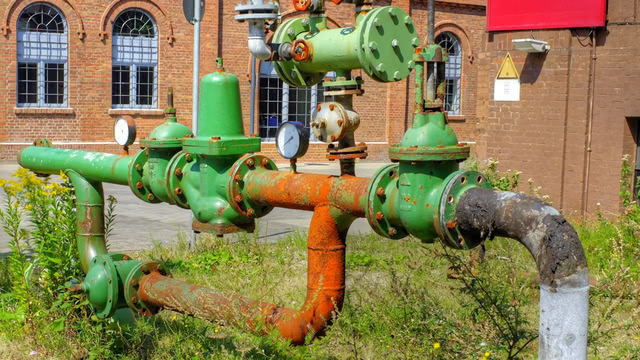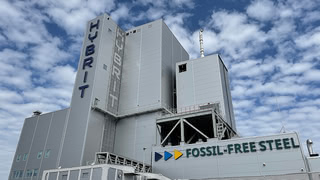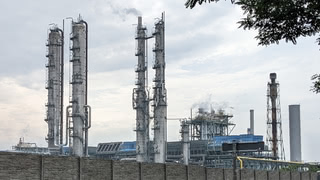Hydrogen Heating and the Future of the Gas Grid
Most experts don't see a future for hydrogen boilers in buildings, but industry groups lobby for them. This raises an important question: What future is there for gas grids?

In recent years, interest in green hydrogen as a climate solution has increased. Today almost all hydrogen is produced from fossil fuels, the gas could be made with green electricity by splitting water in a process called electrolysis.
However, while it is largely uncontroversial that hydrogen will play some role in a decarbonized future, there is a lot of controversy about what that role should be.
There are two major opposing views about the future of hydrogen. Most experts view hydrogen primarily as a tool to decarbonize sectors where no other more efficient alternatives exist. In this view, direct electrification is almost always the preferred way, and hydrogen should only be used in areas where direct electrification is either impossible or extremely difficult.
Hydrogen for sectors where electrification is hard or impossible
Thus, hydrogen would be used to decarbonize sectors like the chemical industry and steel making. Hydrogen is also seen as a potential storage solution for seasonal electricity storage and could be used to produce fuels for shipping and aviation.
There are two main arguments for such a focused use of hydrogen. The first is simply efficiency: Producing hydrogen with electrolysis from green electricity unavoidably involves losses, and using electricity directly is more efficient.
The second argument is one of availability: Today the supply of green hydrogen and other forms of cleaner hydrogen is severely limited. While production will certainly increase in the coming years, it is expected that clean hydrogen will remain scarce for many years to come.
However, there's an opposing view that some industry groups put forward. They see a much wider use for hydrogen, and consider it a form of drop-in replacement for today's use of fossil gas. A common idea is that the gas customers of today could be the hydrogen customers of tomorrow. Which brings us to a particularly controversial topic: The use of hydrogen in domestic heating.
Gas lobbying groups and manufacturers of heating equipment advertise the installation of "hydrogen ready" gas boilers or fuel cells. The idea: While these run on fossil gas today, in the future they can be converted to use hydrogen.
Studies see little value in hydrogen heating
But most experts see little value in the idea of hydrogen heating. Energy researcher Jan Rosenow recently published an analysis in the scientific journal Joule. Rosenow reviewed 32 studies by scientists and independent experts analyzing the question of hydrogen heating. He did not include industry studies.
Rosenow's conclusion is very clear: "The evidence assessment shows that the widespread use of hydrogen for heating is not supported by any of the 32 studies identified in this review."
This conclusion is not particularly surprising. In addition to the inefficient production of hydrogen, in the heating sector the main competitor are heat pumps. And heat pumps are extremely efficient. While hydrogen production always involves losses, heat pumps can generate more heat energy than they need electricity.
But beneath the debate around hydrogen heating, there is another question that is often not talked about: The future of the gas grid.
If climate goals are taken seriously then it is clear that the use of fossil gas needs to decline and eventually be stopped completely. So what happens to the pipelines, compressor stations and other infrastructure of the fossil gas grid?
Some of this infrastructure could be reused for hydrogen. Though it should be noted that there are considerable challenges and questions how feasible conversion of hydrogen infrastructure is. Hydrogen is a very different gas from methane, the main component of fossil gas.
A hydrogen grid would look different
But even if repurposing gas pipelines for hydrogen is possible, the question is what kind of grid hydrogen will need. If one follows the view of the majority of experts where hydrogen is only used in few sectors then it is obvious that such a grid will look very different from the gas grid today.
Particularly, a hydrogen grid would be much smaller and there is no need for a widespread distribution grid that goes into people's homes. Heating, and to a much lesser degree cooking, are the only relevant use cases of gas in private homes. Both can be electrified, and this is the more plausible option.
What seems likely is that a future hydrogen grid will be composed of large hydrogen pipelines connecting production sites, industrial facilities, ports, airports and the like. That would mean that there may be a future for the larger gas transmission pipelines and some of those could be repurposed for hydrogen. But there is no plausible case for a widespread hydrogen distribution network.
That is likely the reason why there is such a strong push for hydrogen heating. It is not so much a plausible scenario for the future of heating, but a story that avoids facing an uncomfortable truth for companies – often municipal companies - owning gas grids: That a lot of what they own will be what is called a stranded asset – infrastructure that will have no use in a decarbonized future.
Author: Hanno Böck
Elsewhere
- For the shipping news site Fathom World I wrote a two part introduction about green methanol. Part one covers methanol made from biomass or waste, Part two covers e-methanol made from carbon dioxide and hydrogen.
Brief
- Agora Industry published a report about Power-2-Heat and the use of heat pumps and electric boilers in industry.
- A company called LanzaTech announced the development of a technology to make Ethylene from carbon dioxide.
- The DemoUpCARMA project, a carbon capture and storage project that wants to ship carbon dioxide from continental Europe to Iceland for storage, has announced that the first CO₂ injection has started near the Hellisheiði geothermal plant.
- During COP27 the company WasteFuel has announced plans for a waste to methanol plant in the United Arab Emirates.
- A blog post by a former Airbus employee gives interesting insights about how Airbus employees feel about climate change and the companies announcements around hydrogen.
- Topsoe and First Ammonia have announced plans for green ammonia production facilities with a capacity of 500 Megawatt in Germany and the United States.
- The company Carbon Recycling International has announced that production has started at the world's largest commercial CO₂-to-methanol plant in Anyang, Henan Province, in China.
- The project Flow wants to create a hydrogen grid in Germany based on repurposed fossil gas pipelines.
- The EU has reached an agreement for the introduction of a Carbon Border Adjustment Mechanism (CBAM) for its Emission Trading System.



